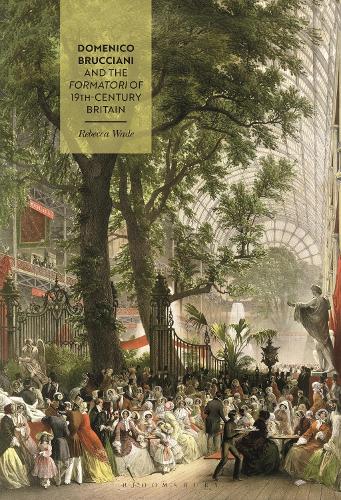
Domenico Brucciani and the Formatori of 19th-Century Britain
(Hardback)
Available Formats
Publishing Details
Domenico Brucciani and the Formatori of 19th-Century Britain
By (Author) Dr Rebecca Wade
Bloomsbury Publishing PLC
Bloomsbury Visual Arts
18th October 2018
United Kingdom
Classifications
Tertiary Education
Non Fiction
Individual artists, art monographs
Sculpture
731.452
Physical Properties
Hardback
216
Width 152mm, Height 229mm
463g
Description
Born near the Tuscan province of Lucca in 1815, Domenico Brucciani became the most important and prolific maker of plaster casts in nineteenth-century Britain. This first substantive study shows how he and his business used public exhibitions, emerging museum culture and the nationalisation of art education to monopolise the market for reproductions of classical and contemporary sculpture. Based in Covent Garden in London, Brucciani built a network of fellow Italian migr formatori and collaborated with other makers of facsimilesincluding Elkington the electrotype manufacturers, Copeland the makers of Parian ware and Benjamin Cheverton with his sculpture reducing machineto bring sculpture into the spaces of learning and leisure for as broad a public as possible. Bruccianis plaster casts survive in collections from North America to New Zealand, but the extraordinary breadth of his practicemaking death masks of the famous and infamous, producing pioneering casts of anatomical, botanical and fossil specimens and decorating dance halls and theatres across Britainis revealed here for the first time. By making unprecedented use of the nineteenth-century periodical press and dispersed archival sources, Domenico Brucciani and the Formatori of Nineteenth-Century Britain establishes the significance of Bruccianis sculptural practice to the visual and material cultures of Victorian Britain and beyond.
Reviews
Rebecca Wade's clearly written and thorough study of Domenico Brucciani illuminates his practice as one of the most important formatori in the nineteenth century, while at the same time exploring in a compelling way plaster casting more generally. This book must be required reading for all those interested in the production of sculpture in Britain in the nineteenth century. * Marjorie Trusted, Senior Curator of Sculpture, Victoria and Albert Museum, London, UK *
Until now Domenico Brucciani, though known to some for his plaster casts for the V&A, has been a somewhat shadowy figure in the Victorian art world and the history of nineteenth-century sculpture. Despite the renewed interest in plaster casts and their role in nineteenth-century Britain, there has been no full or systematic study of the person who played a central role. Rebecca Wade now gives us just what has long been needed in her impressive study of Brucciani, deftly connecting the overlapping areas of sculptural practice and wide-ranging institutional contexts in which he worked. Wades fascinating and richly documented account for the first time shows how significant and interesting Brucciani was. In the process, she makes a major contribution to our understanding of how art (and especially sculpture) was perceived and consumed in Victorian Britain. * Malcolm Baker, Distinguished Professor of Art History, University of California, Riverside, USA *
Author Bio
Rebecca Wade is Assistant Curator of Sculpture, Leeds Museums and Galleries, UK.
